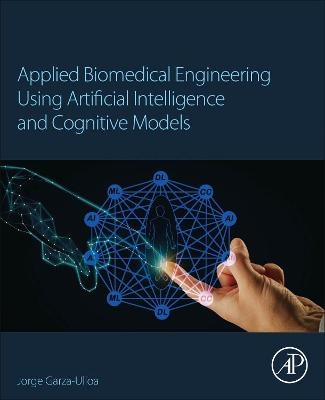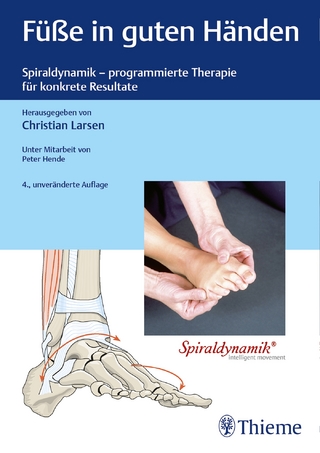
Applied Biomedical Engineering Using Artificial Intelligence and Cognitive Models
Academic Press Inc (Verlag)
978-0-12-820718-5 (ISBN)
The interaction between these three areas are studied in this book with the objective of obtaining AI models on injuries and neurologic diseases of the human body, studying diseases of the brain, spine and the nerves that connect them with the musculoskeletal system. There are more than 600 diseases of the nervous system, including brain tumors, epilepsy, Parkinson's disease, stroke, and many others. These diseases affect the human cognitive system that sends orders from the central nervous system (CNS) through the peripheral nervous systems (PNS) to do tasks using the musculoskeletal system. These actions can be detected by many Bioinstruments (Biomedical Instruments) and cognitive device data, allowing us to apply AI using Machine Learning-Deep Learning-Cognitive Computing models through algorithms to analyze, detect, classify, and forecast the process of various illnesses, diseases, and injuries of the human body.
Applied Biomedical Engineering Using Artificial Intelligence and Cognitive Models provides readers with the study of injuries, illness, and neurological diseases of the human body through Artificial Intelligence using Machine Learning (ML), Deep Learning (DL) and Cognitive Computing (CC) models based on algorithms developed with MATLAB® and IBM Watson®.
Dr. Jorge Garza-Ulloa is the CEO/Director of Garzaulloa.org Research Consulting Services. He graduated from the doctoral program in Electrical & Computer Eng. at University of Texas El Paso (UTEP). Dr. Garza-Ulloa has focused his research in the development of mathematical models for Electrical and Computer Engineering: Biomedical applications, such as his Mathematical Model for the Validation of the Ground Reaction Force Sensor in Human Gait Analysis, the Mathematical model to predict Transition-to-Fatigue during isometric exercise on muscles of the lower extremities, his mathematical model to be used in the Assessment and evaluation of dynamic behavior of muscles with special reference to subjects with Diabetes Mellitus (dissertation) . Besides: his natural fuzzy logic model for differential analysis in muscle/joint activation point using infer T equation for muscle/joint, Extension of the T-Fuzzy inference equation using Fuzzy Mapping for Human Gait Analysis to identify the eight-basic pathologic gait attributed to neurological conditions (Academic press book: Applied Biomechatronic Using Mathematical Models), many others. In this book introduces: Cognitive Learning models and its relationship with neuroscience of reasoning under Cognitive Learning- Reasoning (CL&R) applying Cognitive Computing (CC), and many others to be integrated at the Proposed General Architecture framework of a Cognitive Computing Agents System (AI-CCAS). Dr. Garza-Ulloa has been the recipient of numerous honors and awards including a University of Texas at El Paso Graduate School Research Award, Research Schellenberg Foundation, Stern Foundation, Elsevier grants, and others. Dr. Garza-Ulloa is currently teaching at the University of Texas at El Paso USA and continue his Biomedical Engineering research at Research Consultant Services at El Paso Texas, USA.
1. Biomedical Engineering and the evolution of Artificial Intelligence 2. Introduction to Cognitive science, cognitive computing and human cognitive relation to help in the solution of AI Biomedical engineering problems 3. Artificial Intelligence models applied to Biomedical Engineering 4. Machine learning models applied to Biomedical Engineering 5. Deep learning models applied to Biomedical Engineering 6. Cognitive Computing models applied to Biomedical Engineering 7. C AI-ML-DL-CC models applied to Biomedical Engineering
| Erscheinungsdatum | 02.09.2021 |
|---|---|
| Verlagsort | San Diego |
| Sprache | englisch |
| Maße | 216 x 276 mm |
| Gewicht | 1880 g |
| Themenwelt | Medizin / Pharmazie ► Physiotherapie / Ergotherapie ► Orthopädie |
| Technik ► Medizintechnik | |
| Technik ► Umwelttechnik / Biotechnologie | |
| ISBN-10 | 0-12-820718-3 / 0128207183 |
| ISBN-13 | 978-0-12-820718-5 / 9780128207185 |
| Zustand | Neuware |
| Haben Sie eine Frage zum Produkt? |
aus dem Bereich


